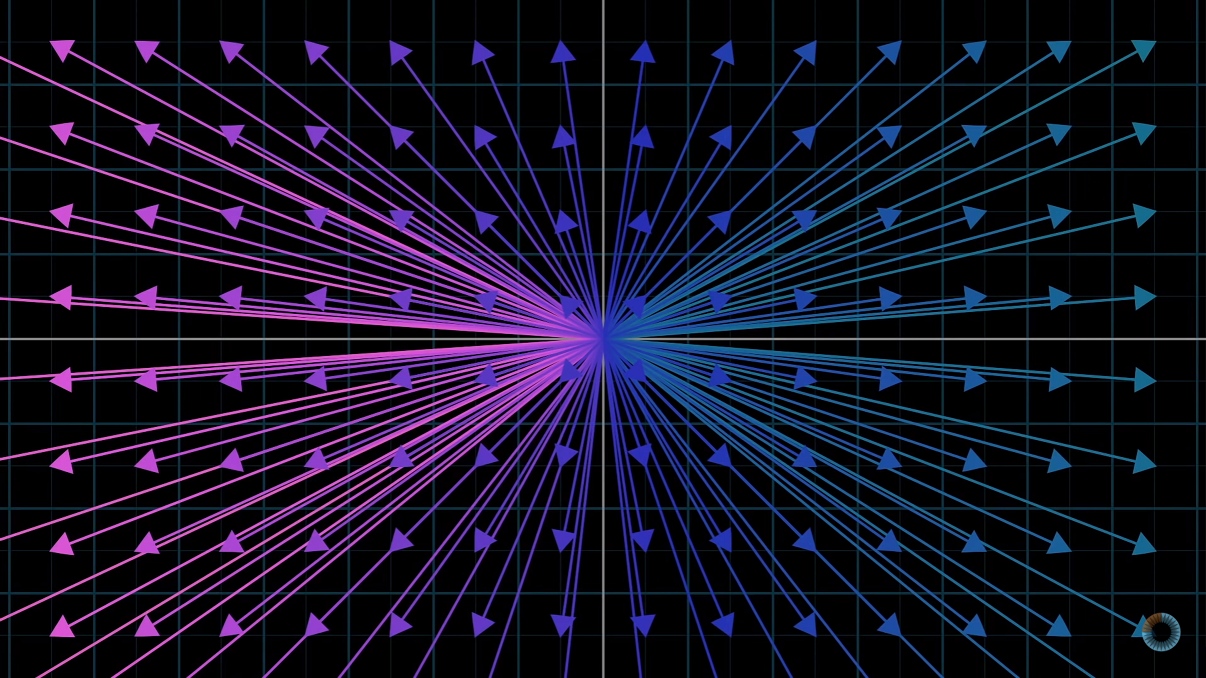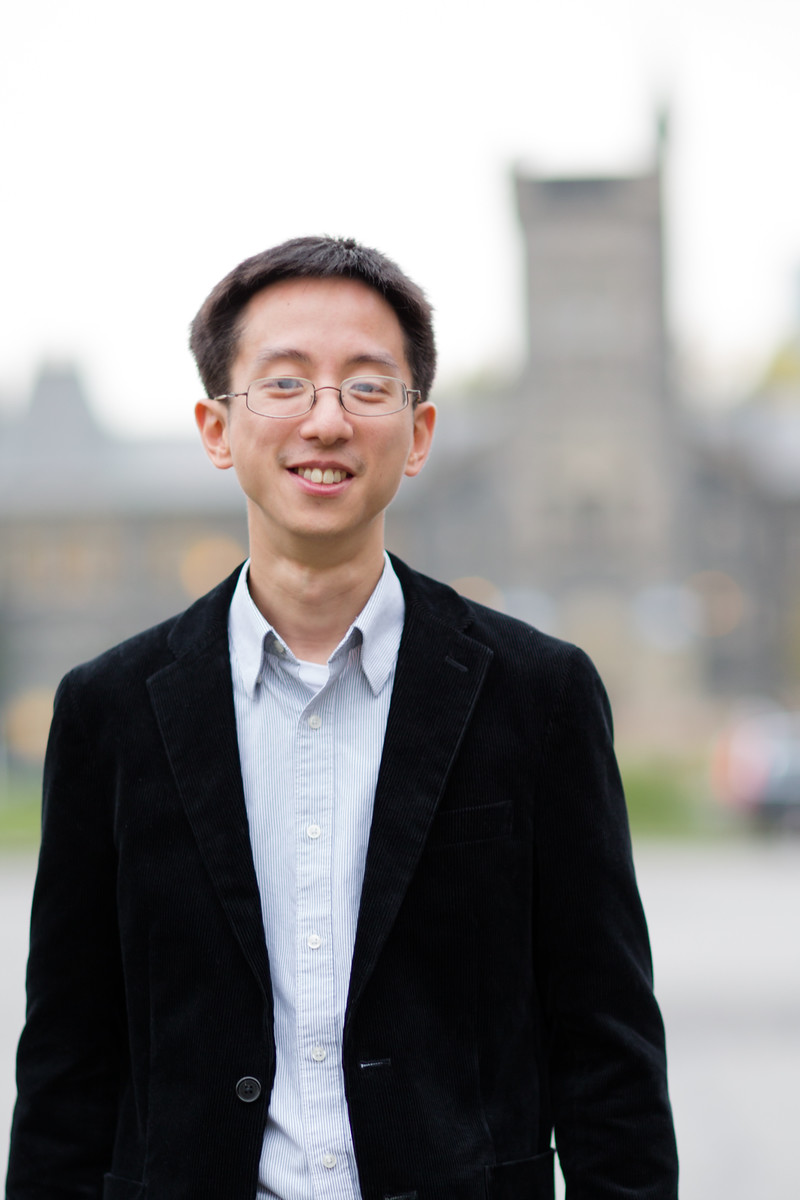Q: What happens when a mosquito and a mountain climber cross paths?
A: Nothing — you can’t cross a vector and a scalar!

ESC103 is one of two math courses (ESC194 is the other) you’ll be taking in the Fall semester. Get ready to learn about linear algebra and computational methods.
The first half of the course covers linear algebra concepts. Some—like vectors, dot products, cross products, and matrices—may be familiar to you. Others will be more advanced. These topics include projections, row picture and column picture, matrix factorization, and Gaussian elimination.
In the second half of the course, you will use linear algebra to perform advanced computations. You’ll learn about different computational techniques, including Euler’s Method. These allow you to approximate solutions to systems of equations. While you can solve systems of two or three equations quickly by hand, approximating solutions for higher-order systems would take much longer. This is where MATLAB comes in handy – it’s a programming language as well as a platform for performing numeric computation and used by scientists and engineers to analyze large amounts of data more easily.
This course is less content-heavy than CIV102 or ESC194. This makes it easier for some students – especially if they covered vectors and matrices in high school. For others, the content of ESC103 is entirely new. If this is the case for you, do not worry! The course will be taught as if you’ve never seen any of the material before. Although you will all come into ESC103 with different levels of experience, the course is designed so that everyone should hopefully leave on the same page.
Professors

Professor Arthur Chan
Professor Arthur Chan is an assistant professor in Chemical Engineering & Applied Chemistry. He has a bachelor of science degree from the University of Pennsylvania and a master of science and PhD from California Institute of Technology. His research focuses on the chemistry of air pollution and its effects on human health. In addition to being the Canada Research Chair in Atmospheric Chemistry and Health, he is also the Principal Investigator at the Environmental Organics Laboratory.
Interview
“I really like when I see someone who is sort of interested in a particular topic but not knowing much about it, but having that curiosity, and then I could show them different ways of obtaining that knowledge. It just really inspires me when people are really eager to learn and I’m able to show them […]”
“The first part of engineering mathematics is really about the basics of linear algebra, so taking a system of linear equations and then solving them. The second part is computation which is translating them then using tools like a computer to solve those equations.”
“I would advise them, between now and coming to U of T, to take the time and enjoy themselves and when y’all come to U of T I think it’s good to have a balanced life. Obviously Engineering Science, it’s a very demanding program there’s a lot to do, so make sure [things like eating and sleeping] are also the main focus of your lives.”
Course Highlights
- For those that have been introduced to matrices in high school, you’ll learn a much more formal and systematic approach to simplifying them known as Gaussian Elimination.
- You’ll learn a new programming language, MATLAB. This language is better suited to engineering calculations than Python, which you’ll be learning in ESC180.
- The group format of tutorials fosters a collaborative environment in class, and you’ll soon learn that collaboration is key in engineering.
Week in the Life of an ESC103 Student
Lectures
There are typically two hours of lecture per week for ESC103, as opposed to the usual three hours per course. The lectures move at a decent pace and will usually cover new content every day. Even though notes are typically posted by the instructors, it’s still very important not to rely on them and attend lectures in person to keep pace with the course.
Tutorials
While there are no practicals for ESC103 there is a two-hour tutorial each week led by great TAs (most of whom are upper-year EngScis or alumni). Your TA will summarize the material learned in lecture that week before giving you a set of questions. They might work through some of these, but it’s mostly up to you to solve the problems. You will do this in small groups during the tutorial session. You may not complete all problems during the tutorial, but you’re encouraged to finish them on your own time. Make sure you‘re comfortable completing these tutorial questions: the midterm and final will include very similar problems.
Starting in early November, your tutorial time will be spent working through a weekly MATLAB lab with the help of your TAs during which you’ll apply computational techniques learned in lecture to real-world situations. These labs are very doable within a two-hour tutorial.
MATLAB Test
There are no assignments for this course. However, there is a MATLAB test that is weighed similarly to the midterm. The MATLAB test questions are similar to the weekly labs, so don’t be intimidated by it. The best way to prepare is by making sure that you complete the labs and understand them. You should be able to understand the reasoning behind each solution in addition to writing the code on your own. Closer to the test date, you’ll be able to access some past MATLAB tests: these are a great source of additional practice problems.
Midterm and Exam
Most questions on the midterm and final exam should be similar to what is covered in lecture. Because there are no assignments, keeping up with the lecture content and weekly tutorial problems throughout the term is the best way to refresh your understanding and help reduce the amount of last-minute cramming. Past midterms/exams are also good practice, but make sure to confirm whether content coverage has changed as past papers may not cover the exact same material.
Find past ESC103 exams in the Skule exam repository.
How to Succeed
Quick Tips & Equations
- Row reduction using Gaussian elimination — Learn this well in ESC103. It will continue to be used in other courses, including MAT185.
- Indexing for MATLAB starts at 1, not 0.
This is good to remember because you’ll be learning Python at the same time, where indexing DOES start at 0.
- y_{n+1} = y_n + hf(t_n, y_n) — Euler’s method. You’ll see more of this soon.
More Details
You may find the first few weeks of the course relatively easy, but don’t let that fool you. This course starts moving fast when you least expect it. Be on guard to avoid getting lulled into a false sense of security. It will be very difficult if you save all your studying for the day before the exam.
Attend all tutorials throughout the semester. Not only will they help you understand concepts and practice applying them, it’s also free marks. No, seriously: you get participation marks for simply attending tutorials. This counts for 10% of your final grade!
As stated earlier, tutorial problems are your best resource when it comes to learning course content and preparing for the midterm/exam. Full solutions are posted at the end of each week: use these to check your answers and solution methods. Please don’t get into the habit of just checking the solutions and tricking yourself into thinking you can solve the problems without any practice. This can backfire on the midterm and final exam.
Studying for a pure math course for the first time can be challenging. Nevertheless, there are plenty of supports available. The way lecture content is structured allows for plenty of questions from students, so don’t hesitate to raise your hand during lectures. The TAs for ESC103 are also very helpful. Almost all of them are EngSci graduates who have taken the course, so they are familiar with its challenges. Feel free to reach out to them if you get stuck on a problem.
Beyond First Year
- You will be introduced to problem-solving in pure math, something you likely haven’t seen before. This includes solving problems using both geometric and algebraic perspectives.
- Your MATLAB skills will help you in other courses such as CIV102 and will be a great addition to your resume.
- The linear algebra portion of the course will be an essential foundation for MAT185 in the Winter semester. The introduction to differential equations in the engineering computation part of the course will give you a sneak peek at the second-year course MAT292 (Ordinary Differential Equations).
Overall, the materials covered here will serve as the basis for many upper-year courses throughout EngSci.

